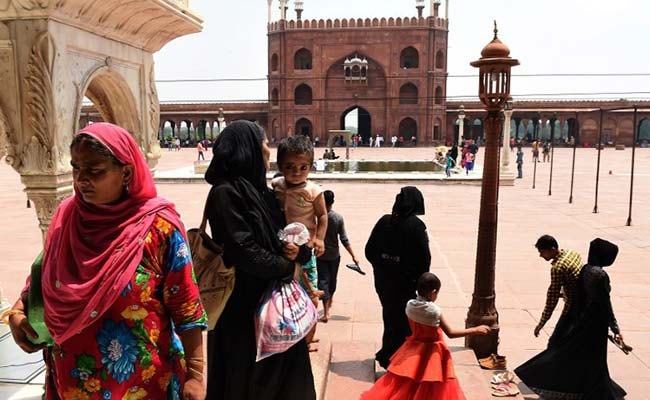
The Supreme Court will hear four PILs against the practises of Nikah Halala and polygamy among Muslims.
New Delhi:
The legal validity of Nikah Halala -- a complicated process needed to remarry one's divorced wife -- and polygamy among Muslims will now be examined by the Supreme Court, which declared instant Triple Talaq unconstitutional seven months ago. A Constitution Bench of the top court, comprising its five senior-most judges, will hear four petitions challenging the legal validity of the two practices.
The court has already issued notices to the Centre regarding the matter.
Nikah-Halala is a practice intended to curb the incidence of divorce. Under it, a man cannot remarry his former wife unless she marries another man, consummates the marriage, gets a divorce and observes a period of separation period called "Iddat". Polygamy is the practice of having more than one wife at a time.
The need to stop Nikah Halala and polygamy has been highlighted repeatedly by women's groups, which contend that the practices are discriminatory and denigrating for women. The petitioners -- two Muslim women and a BJP lawyer -- want the top court to declare both practices illegal and unconstitutional.
In her petition, one of the women said she has been a victim of polygamy and had filed the petition to highlight the plight of thousands of Muslim women across the country. BJP lawyer Ashwini Kumar Upadhyay said a ban on polygamy and Nikah-Halala is the need of the hour to secure basic rights.
Last year, when a constitution bench examined the possibility of looking into the legal validity of instant Triple Talaq -- -- under which Muslim men can divorce their wives instantly by uttering "Talaq" thrice -- the government had also flagged Nikah Halala and polygamy. But the bench cited shortage of time and left the two issues for adjudication at a later date.
In its judgment, delivered in August, the top court called instant Triple Talaq "bad in law". It is also "not integral to religious practice and violates constitutional morality," the court said.
Later, the government drafted a new law against Triple talaq, calling it unconstitutional, and derogatory and discriminatory for women. The bill, which proposes a three-year-jail term for a Muslim man who divorces his wife instantly by uttering triple talaq thrice, has been passed in Lok Sabha and is now pending in Rajya Sabha.
The court has already issued notices to the Centre regarding the matter.
Nikah-Halala is a practice intended to curb the incidence of divorce. Under it, a man cannot remarry his former wife unless she marries another man, consummates the marriage, gets a divorce and observes a period of separation period called "Iddat". Polygamy is the practice of having more than one wife at a time.
The need to stop Nikah Halala and polygamy has been highlighted repeatedly by women's groups, which contend that the practices are discriminatory and denigrating for women. The petitioners -- two Muslim women and a BJP lawyer -- want the top court to declare both practices illegal and unconstitutional.
In her petition, one of the women said she has been a victim of polygamy and had filed the petition to highlight the plight of thousands of Muslim women across the country. BJP lawyer Ashwini Kumar Upadhyay said a ban on polygamy and Nikah-Halala is the need of the hour to secure basic rights.
Last year, when a constitution bench examined the possibility of looking into the legal validity of instant Triple Talaq -- -- under which Muslim men can divorce their wives instantly by uttering "Talaq" thrice -- the government had also flagged Nikah Halala and polygamy. But the bench cited shortage of time and left the two issues for adjudication at a later date.
In its judgment, delivered in August, the top court called instant Triple Talaq "bad in law". It is also "not integral to religious practice and violates constitutional morality," the court said.
Later, the government drafted a new law against Triple talaq, calling it unconstitutional, and derogatory and discriminatory for women. The bill, which proposes a three-year-jail term for a Muslim man who divorces his wife instantly by uttering triple talaq thrice, has been passed in Lok Sabha and is now pending in Rajya Sabha.
Track Latest News Live on NDTV.com and get news updates from India and around the world

